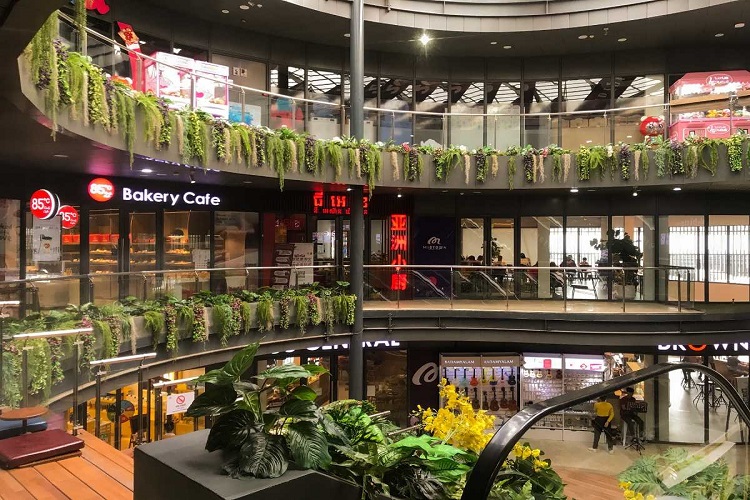

Cambodia is navigating oversaturation, e-commerce, and community integration in mall development
November 20, 2023 | Staff Reporter | Cambodia | Developers

The retail mall landscape in Phnom Penh is undergoing significant challenges as traditional brick-and-mortar shopping faces competition from e-commerce, exacerbated by economic and geopolitical pressures. According to Deputy Managing Director of CBRE Cambodia Kinkesa Kim on Cambodia Investment Review, oversaturation caused by an explosion of retail projects has led to a mismatch between supply and demand. Alarming trends in occupancy rates reveal a decline from 85% to 58.3% in office occupancy and from 70% to 68.5% in retail occupancy by mid-2023. Global factors such as geopolitical tensions and the shift to online shopping contribute to the local market’s woes.
With 51 completed retail spaces and 72 more under construction, Phnom Penh’s skyline reflects an exceedingly saturated market relative to its population density. Kinkesa suggests adaptability and repurposing as the solution, encouraging developers to be more flexible in space utilisation. Examples include Fun Mall, K Mall, and the Green Community Mall, which have integrated community-focused facilities to diversify offerings.
This trend aligns with global repurposing efforts where “ghost malls” are transformed into community spaces. The shift from purely commercial spaces to multifunctional, community-centred environments marks a crucial juncture for Phnom Penh’s malls, potentially setting a blueprint for real estate development in Southeast Asia.
Phnom Penh’s retail sector faced stagnation in 2023, attributed to a sluggish global economic climate. Research for Q3 indicated a 3% decline in occupancy of the available 650,000 sq m of retail space, with no new launches or completions during the period. Construction delays reduced the expected new supply from 119,000 sq m to 51,000 sq m. Despite two anticipated project completions by year-end, the overall net leasable area is projected to increase by 2% to approximately 660,000 sq m. Notably, interest shifted from internal retail projects to standalone high street locations, with prime locations experiencing a 13% increase in rates. However, the average quoting rent for retail spaces decreased by 1-7%.
Challenges persisted as 50% of projected retail projects were postponed to 2024, attributed to market challenges rather than construction setbacks. Movement of international and local brands led to a decline in occupancy from 70% in Q2 to 68% in Q3. Rental quotes for prime shopping mall units and retail podium units decreased, while high street units experienced a 13.3% increase. The Ministry of Economy and Finance’s Q2 bulletin revealed a decrease in construction projects but a 130.2% surge in investment capital, with residential and industrial sectors leading the way.